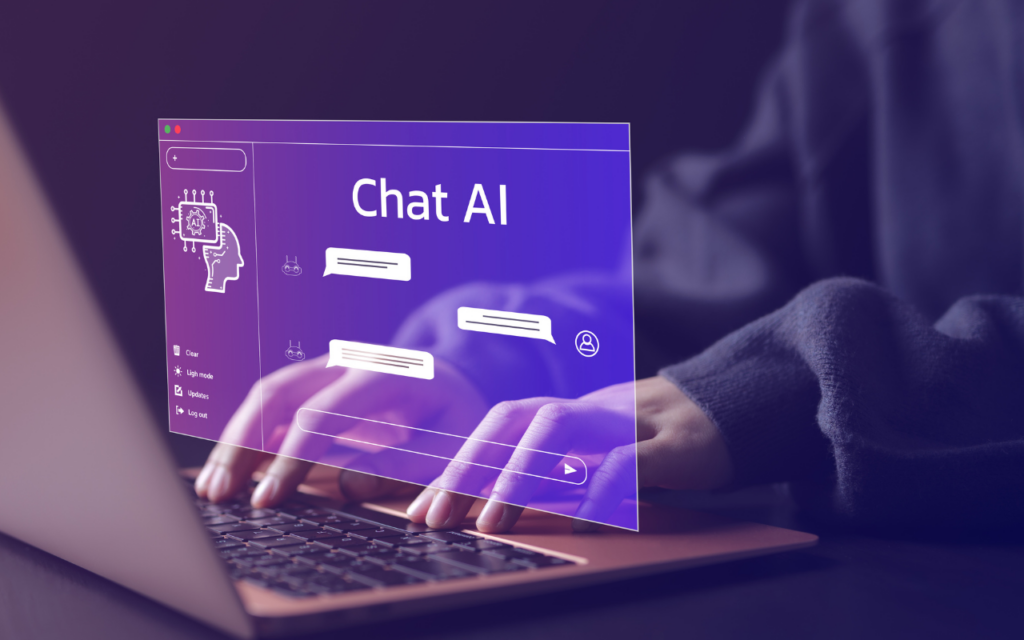Artificial Intelligence (AI) is poised to reshape the business landscape in ways we are only beginning to understand. From transforming operations to redefining customer interactions, AI’s influence is rapidly expanding, offering opportunities for growth, efficiency, and innovation. But what does this mean for your organization? How can you leverage the power of AI to stay ahead of the curve?
According to Gartner, generative AI will be a workforce partner for 90% of companies globally by 2025. As we look toward the future, understanding AI’s potential impact on your organization is crucial for staying ahead.
The Evolution of AI: From Automation to Augmentation
AI has come a long way since its inception. Initially, AI systems were designed primarily for automation—taking over repetitive tasks and improving efficiency. This early stage of AI focused on rule-based systems and process automation, allowing organizations to reduce costs and increase productivity by automating routine, manual tasks.
However, as AI technologies have evolved, they have moved beyond simple automation to augmentation. Today’s AI systems are capable of analyzing vast amounts of data, learning from patterns, and making informed decisions with minimal human intervention.
Machine learning, natural language processing, and computer vision are just a few examples of AI technologies that are now augmenting human capabilities across various domains.
The Current State of AI in Business
AI has already made significant progress into various industries, revolutionizing everything from customer service with chatbots and virtual assistants to supply chain management with predictive analytics.
Organizations worldwide are leveraging AI to automate routine tasks, analyze vast amounts of data, and make more informed decisions. This has led to increased productivity, reduced operational costs, and improved customer experiences.
However, despite these advancements, the full potential of AI remains untapped. Many organizations are still in the early stages of AI adoption, experimenting with pilot projects and trying to understand how best to integrate AI into their existing workflows. As AI technology continues to evolve, its impact on business processes will only grow more profound.
The Future of AI: What Lies Ahead
The future of AI is both exciting and challenging. Here are some key trends and developments that will shape the future of AI and its impact on organizations:
AI-Powered Decision-Making: AI will increasingly be used to augment human decision-making, providing insights and recommendations beyond the capabilities of traditional analytics tools. From strategic planning to real-time operational decisions, AI will become an indispensable tool for leaders at all levels of an organization.
Automation and Workforce Transformation: As AI becomes more sophisticated, it will take over more complex tasks, leading to a shift in the workforce. Routine jobs will be automated, freeing up employees to focus on higher-value work that requires creativity, problem-solving, and emotional intelligence. Organizations will need to invest in reskilling and upskilling their workforce to adapt to these changes.
Enhanced Customer Experiences AI will enable organizations to deliver personalized experiences at scale. By analyzing customer data in real-time, AI can anticipate needs, tailor interactions, and provide a level of service previously unimaginable. This will not only improve customer satisfaction but also drive brand loyalty and increase revenue.
AI as a Competitive Advantage: Organizations that effectively leverage AI will gain a significant competitive advantage, driving innovation, efficiency, and growth. Those that fail to adopt AI risk being left behind in an increasingly digital and data-driven world.
Innovation and Product Development: AI is becoming a critical driver of innovation. Organizations can leverage AI to identify new market opportunities, develop cutting-edge products, and accelerate time-to-market. AI can also assist in product design by analyzing customer feedback and usage data to enhance features and functionalities, ensuring that new products meet evolving consumer demands.
Talent Management and Recruitment: AI is revolutionizing talent management by helping organizations identify the best candidates and predict employee performance. AI-driven recruitment tools can analyze resumes, assess candidate suitability, and even conduct preliminary interviews. Beyond hiring, AI can also be used for employee retention strategies by analyzing engagement levels and identifying potential issues before they escalate.
Preparing Your Organization for the AI-Driven Future
To fully realize the benefits of AI, organizations must take proactive steps to prepare for the changes ahead. Here are some strategies to help your organization navigate the AI revolution:
Develop a Clear AI Strategy: Begin by defining how AI aligns with your organization’s goals and objectives. Identify the areas where AI can have the most significant impact and develop a roadmap for AI adoption. This should include a plan for integrating AI into your existing systems and strategies for overcoming potential challenges.
Invest in AI Talent and Skills: Building a successful AI-driven organization requires a workforce equipped with the right skills. Invest in training and development programs to ensure that your employees have the knowledge and expertise needed to work with AI. Consider hiring data scientists, AI specialists, and other professionals who can help drive your AI initiatives.
Focus on Data Quality and Management: AI relies on high-quality data to function effectively. Ensure that your organization has robust data management practices in place, including data governance, data security, and data quality control. This will not only improve the performance of your AI systems but also reduce the risk of data-related issues.
Foster a Culture of Innovation: Encourage a culture of experimentation and innovation within your organization. AI is still an emerging technology, and its full potential is yet to be realized. By fostering a culture of continuous learning and experimentation, your organization can stay ahead of the curve and capitalize on new AI opportunities as they arise.
Establish Ethical AI Practices: As AI becomes more integrated into your organization, it’s crucial to establish ethical guidelines and practices. This includes ensuring transparency in AI decision-making, addressing potential biases in AI algorithms, and safeguarding customer data. By prioritizing ethical AI, your organization can build trust with customers, employees, and stakeholders.
Conclusion
The future of AI holds immense potential for organizations across all industries. By embracing AI and preparing for its impact, your organization can unlock new opportunities for growth, efficiency, and innovation. However, success in the AI-driven future will require a clear strategy, investment in talent and skills, a focus on data management, and a commitment to ethical AI practices. As AI continues to evolve, organizations that can adapt and thrive in this new landscape will be the ones that emerge as leaders in the digital age.










